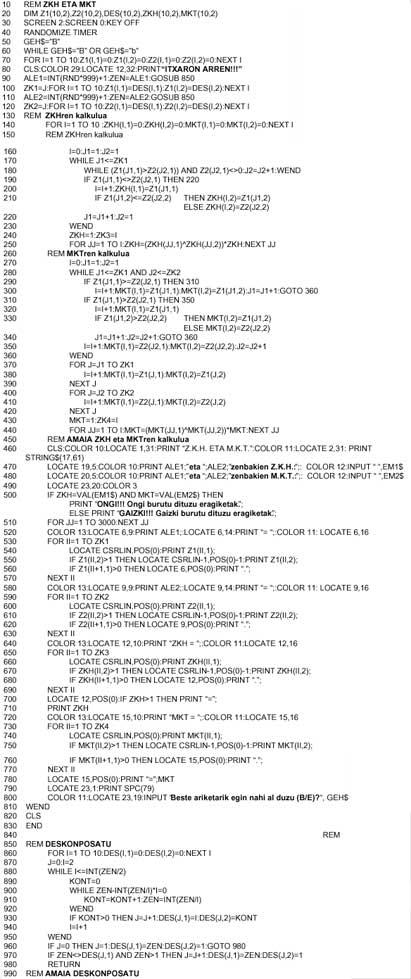Maximum common divider and minimum common multiple
Two numbers ago, specifically in number 31, we opened a path: Factoring Numbers and explaining the operations that can be carried out with the number in the factors. This issue explains how the Major of Common Dividers and the Minor of Common Multiples are calculated.
In this case the user must enter specific results, S.A.D. and M.K.T. Controlling these results would not be a complicated task for the computer if the numbers and results were predefined. But this time, as in most cases, we wanted to introduce randomness so that the program is kinder at the time of use. Therefore, the same program will calculate the GGDC. and M.K.T.
REMEMBERING! ! News
Maximum Common Dividers
Maximum number that some natural numbers consider dividers simultaneously.
Common Minimum MultipleIt is the smallest number of multiples of all natural numbers at once.
EXAMPLE:
864 = 2 . 3.
909 = 3 . Site Map
Technical service 3 2 = 9
Technical service 2. 3. 101 = 87264
The program is as follows:

Program description
- 70-120: Create two random numbers from 1 to 999 and break them down into factors.
- 130-250: Calculation of I.G.M. Factors common to both numbers are taken with the smallest exponent.
- 260-440: Calculation of M.K.T. All factors appearing in both numbers are taken with the largest exponent. That is, they are repeated once.
- 460-510: Collect the answers entered by the user and check if they are OK or WRONG and communicate.
- 520-780: In any case, the factoring of the correct numbers and results appear on the screen.
- 850-990: Factorial decomposition procedure of a number. See Home Computer nº31.
Buletina
Bidali zure helbide elektronikoa eta jaso asteroko buletina zure sarrera-ontzian











